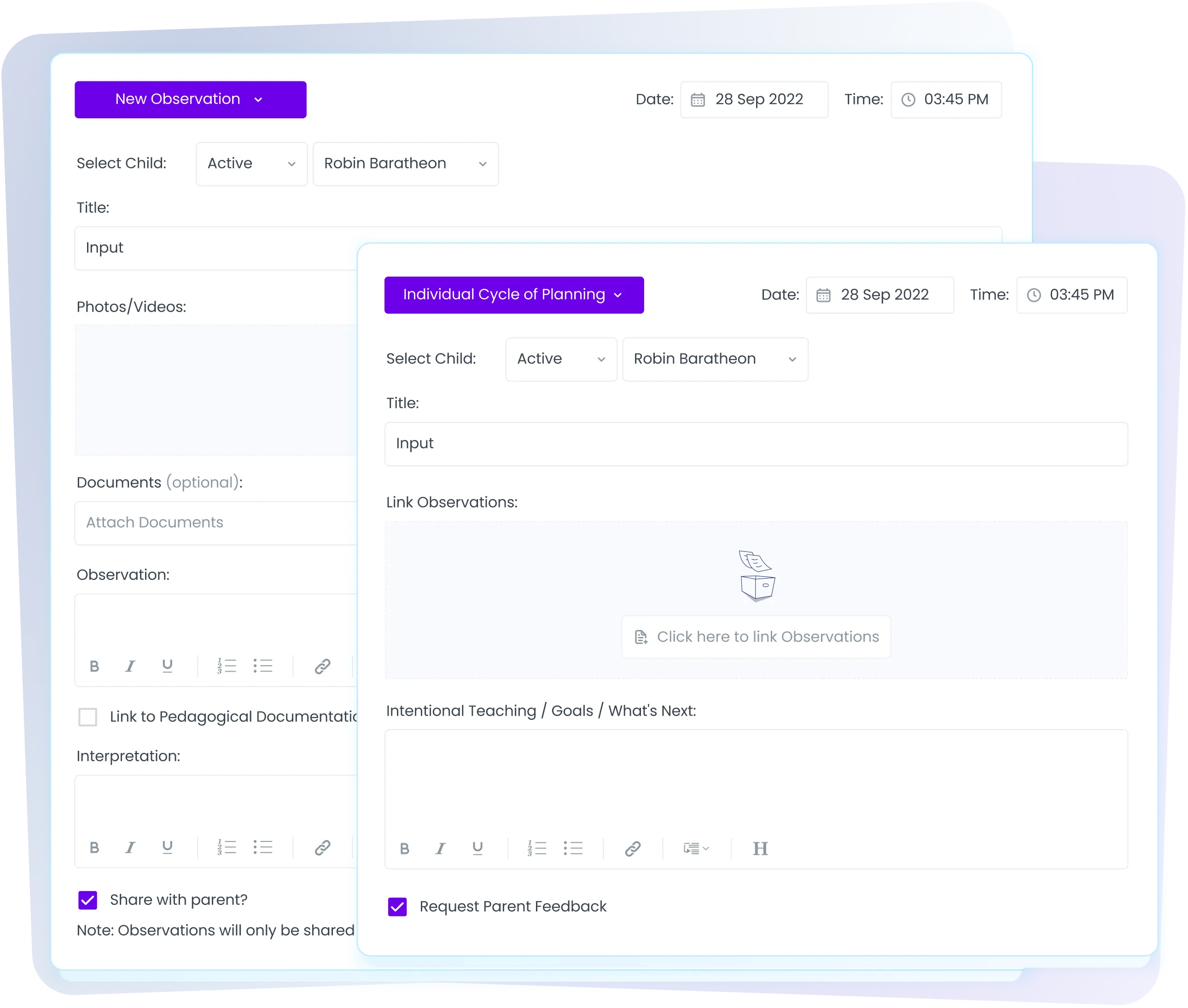The 5 domains of Developmental Milestones
Fast facts -article summary.
Five developmental domains
- Cognitive
- Social
- Emotional
- Physical
- Language

After having your first child, or starting your career in early childhood, sometimes it’s very overwhelming to know where your child should be developmentally. Having worked in early childhood for 21 years, and leading early childhood teams for 17 years, I teach my team and advocate to families that their knowledge of the Developmental Milestones is the foundation of understanding children’s development. When you have access to that knowledge it takes away the guesswork and the stress, and gives you a better understanding of how to support their development.
It’s important to remember that children learn more during their first 5 years than at any other time of their life. 90% of brain development happens in the first 5 years of a child’s life. While all babies and children grow and develop at different rates, tracking how they reach 'milestones' is important to assess their progress, and get early support if needed.
So what are Developmental Milestones?
Developmental milestones are the skills that babies and children develop at a certain age. Milestones can be skills such as taking those precious first steps, saying those first words, and catching a ball. As a parent or educator you see milestones reached and developed every day.
Development usually happens in the same order in most babies and children, but they typically meet different milestones at different ages. Allowing some time for milestones to be reached is important, and shouldn’t be rushed. Mastering milestones are important in order to be ready for the next stages of development. For example; rolling before crawling, crawling before standing, standing before walking.
Not reaching the milestones by a certain age does need to be followed up with a visit to your Maternal Child Health Nurse or GP. Early intervention for children who need some additional support will help support them to reach their full potential. Research has shown that children who start off behind in Prep are likely to stay behind throughout their time at school which can bring with it other challenges. Early intervention is key to supporting children with their development.
Developmental Milestones fall into 5 categories called Developmental Domains:
- Cognitive: The Cognitive domain focuses on problem solving, thinking and learning. For younger children it looks at things like babies exploring their environment, mouthing their toys after looking at them or playing peek-a-boo. For older children it looks at ‘school ready skills’ like counting, patterns, puzzles and writing.
- Social: Looking at how children interact with others is the focus of this domain. For babies it may be their reaction to your smile or coo’s. In older children it may be how they play with their peers, share and smile with their friends, and start to develop independence.
- Emotional: The emotional domain looks at how children connect and contribute to their world. In a baby this looks like bonding with family, responding to facial expressions, settling into routines and self-soothing. For older children it may be that they can show empathy for others who are hurt or that they like to give and receive affection from family.
- Physical: This domain looks at children’s movement and wellbeing. In the early years these milestones are exciting such as a baby learning to roll, crawl and walk. In older children they start to climb, jump and balance.
- Language: How children express themselves and share what they are thinking, as well as understand what is being said and asked of them is covered in this domain. In babies you will get coos and gurgles, you will start to understand the different cries of a baby to identify their needs. In older children it can be following directions, recalling a story of a past event, asking for help or singing.
Putting theory into practice
Understanding the Developmental Milestones, and the domains that fall within them, give families and educators a better understanding of where children are at and how better to support them. Milestones can also be used as a reference to understand children’s behaviour and gauge if it is appropriate at that age. For example, understanding that a 1-year-old crying when you leave is appropriate for their age, or that 3 year olds can start showing bouts of aggression is also normal for that age.
Depending on what observation and Quality Improvement Plan (QIP) program a Service is utilising, Educators may also be able to link their observations to milestones. For example HubHello’s Educate program (an observation QIP and program planning tool available free of charge to all HubWorks users) provides Educators with the ability to link an observation to the EYLF, VEYLF and MTOP frameworks as well as make written observations if a Developmental Milestone has occurred.
To learn more about Developmental Milestones visit the ACECQA website. Should you have any concerns about the development of a child in your care, please see your Maternal Child Health Nurse or your GP.
Want to say hello?
If you’re an existing client of ours (or perhaps you are new to us) and are interested in learning more about Educate please contact us on 1300 769 110.
Five developmental domains
- Cognitive
- Social
- Emotional
- Physical
- Language





